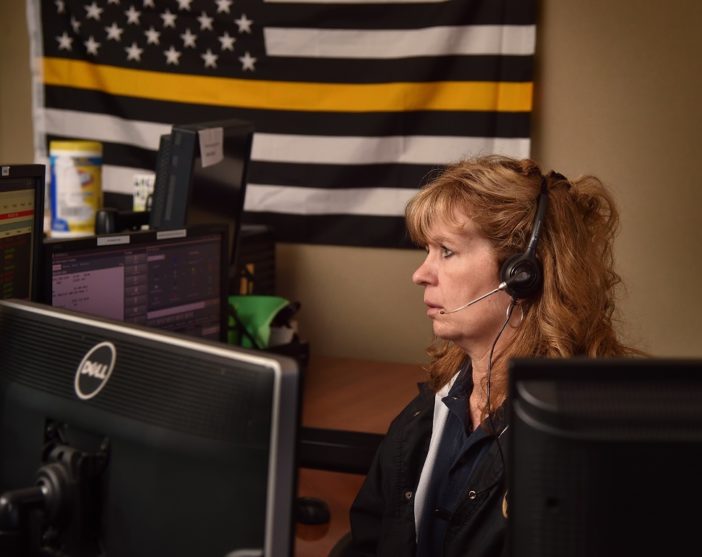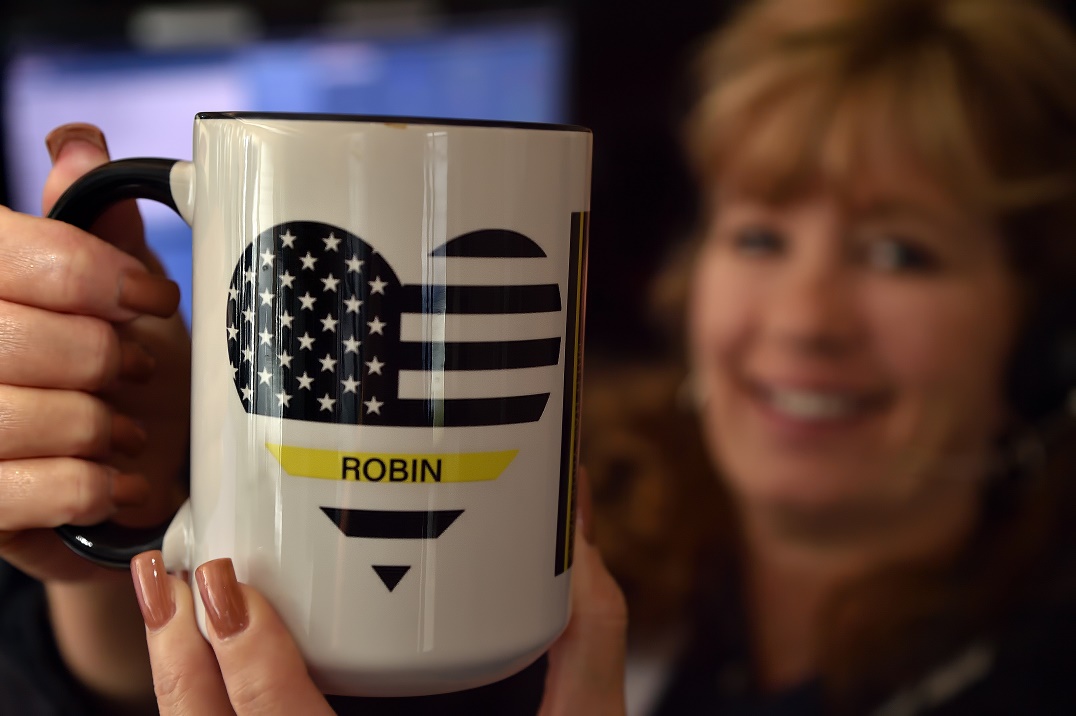A robbery in progress. Officer involved shooting. Baby not breathing. An abduction. Suicide attempt. Murder … Before first responders begin to roll, Pasadena Police Department (PPD) dispatchers are the first point of contact.
The dispatchers process the information within seconds, deciding: how many officers should be deployed. Is there an imminent threat to the community? Will paramedics or fire engines be needed?
So to say dispatchers are the first, first responders is 100 percent accurate.
“When I talk about dispatching to other people, I give a visual of an octopus, and their hands are moving at all different speeds … all eight legs and they are focused on one area,” said PPD administrator Karen Peterson a former dispatcher and dispatch supervisor. “They take the call from start to finish, get the information out to the officer and anyone else they need to get the information out to, and keep in mind the safety of the public, the field personnel and the needs of a community.”
It’s an awesome responsibility.
PPD employs 21 (out of 26) dispatchers, with at least four on duty at any given time, Peterson said.
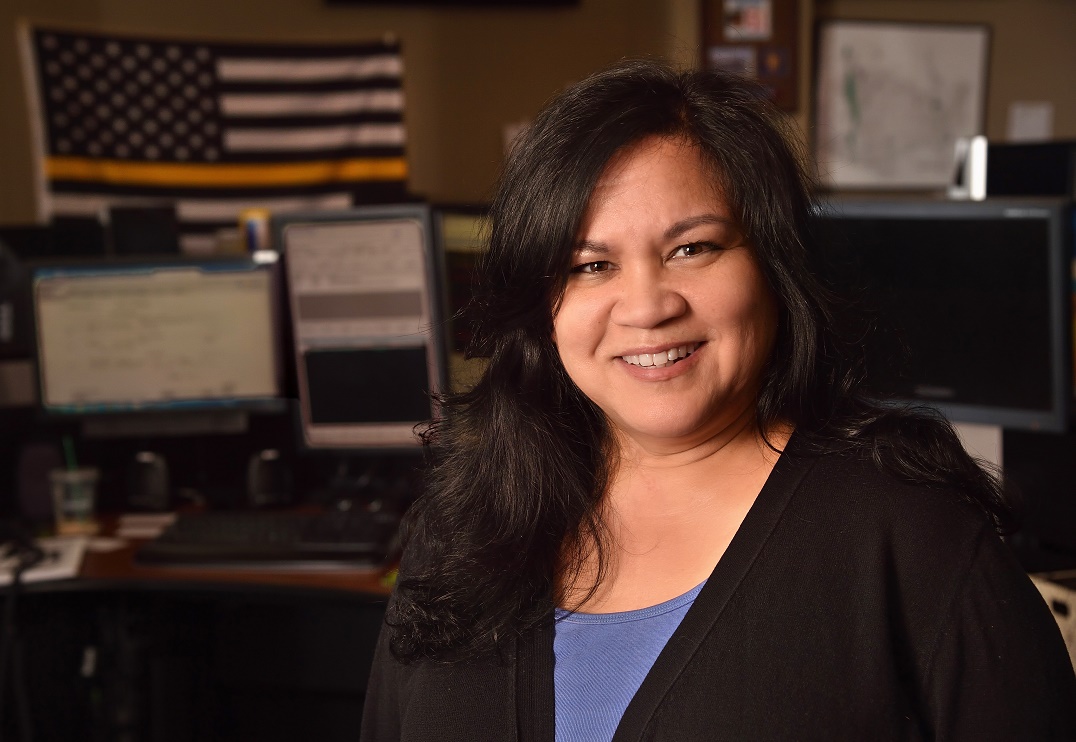
Karen Peterson, administrator for Pasadena PD’s dispatch center.
Photo by Steven Georges/Behind the Badge
Unlike most agencies, where dispatchers are working in a dark, windowless room, PPD dispatchers operate from a second-floor corner room with a view of Pasadena’s foothills on the north side of headquarters.
PPD has a main dispatcher who deals only with the radio calls.Another dispatcher is tasked with checking on wants and warrants, checking driver licenses or contacting a towing company. Another takes calls from the public. Dispatchers can view a monitor to see the current location of officers and whether they are in the middle of a call or free to take a call.
No call is routine, even if it seems to be.
Twenty years ago, dispatcher Rosanne Macias had just completed her training when taking a report of two men smoking marijuana in a parking lot.
Macias dispatched two officers to what appeared to be an inconsequential call.
“Then one of the officers came on the radio and said, ‘I need an ambulance! I’ve been shot!” recalls Macias, who is now a dispatch supervisor. “It was terrible. Everything just stopped. It was like the Twilight Zone in here. Your adrenaline is just going. We start getting help. We put it out and everyone starts going. Everyone in the department was rolling.”
As it turned out, an exchange of gunfire resulted in two officers being hit, one in the leg and one in the face.The suspects were later caught and arrested.
“Every situation has a different set of questions that need to be asked,” Peterson said. “We want to know the who, what, when, where, why and how … get the meat and potatoes and go from there. Each call has a different type of questions and priority. You never know what you are going to get.”
Before sending an officer to a location, the dispatcher should find out what the officer will need on the call. The officer will want to know the history of the location of the people at the location. The officer will want to need to know if there are any vehicles connected to the location.“What is it that we need to provide to keep them safe,” Peterson said. “Whatever information we can gather.”
At some point in their careers, most dispatchers will take a call from a distraught person threatening to commit suicide, dispatcher Monica Ridley said.
The dispatcher will need to ascertain their location, whether they are armed, have ingested drugs or are threatening to jump in front of cars.
“It’s a little nerve wracking because you don’t want to say the wrong thing, Ridley said. “You listen to them. They are calling for a reason. You keep them talking. If they are talking you know that they are ok. You empathize. You keep them talking.”
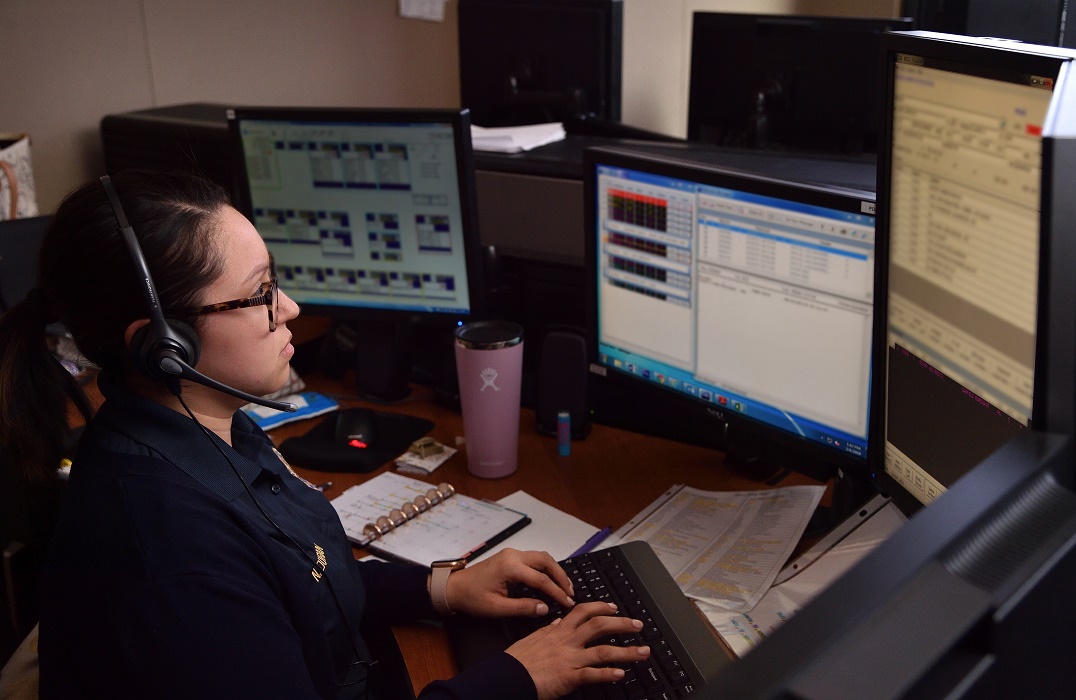
Pasadena PD Dispatcher Natalie Duran takes calls at her 9-1-1 dispatch station at police headquarters.
Photo by Steven Georges/Behind the Badge
Robin Evans, a dispatcher with PPD for 38 years recalls a call she was taking from Spanish speaking female. Evans got a translator on the line and discovered the caller was witnessing a man stabbing a woman. She sends officers.
“I hear the officer drive up,” Evans said. “I hear the screech of the brakes. I hear the officer shout many commands. ‘Put it down. Put it down. Put it down’ and then bang, bang, bang, bang. The lady on the phone is like “Oh my gosh. Oh my gosh. So I’m trying to tell her to calm down.”
The officer shot the knife wielding man, likely saving the woman’s life.
About 15 years ago, Evans took a report on a 16 year old boy who had run over several pedestrians along the roadway.
Among the victims were a mother and her 6-year old child.
Evans listened as officers called for ambulances over the radio.
“You could hear the tears in the officers’ voices,” Evans said.” You could tell they were crying.”
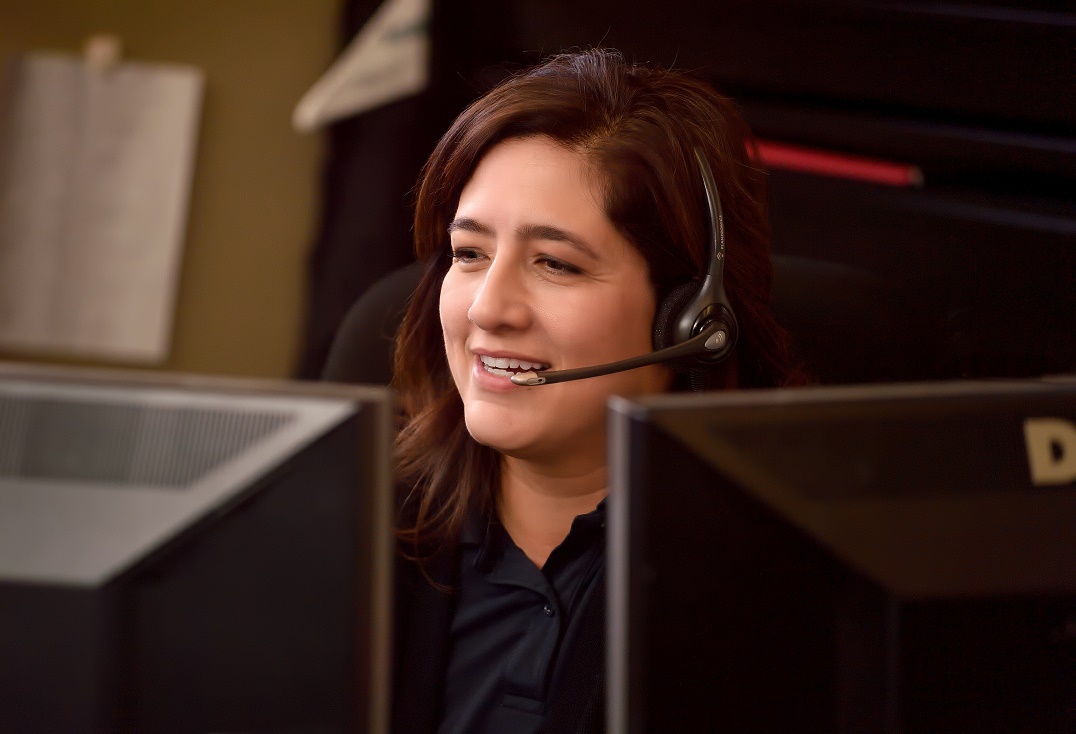
Rosanne Macias, police supervisor for Pasadena PD’s dispatch center.
Photo by Steven Georges/Behind the Badge
Diana Parra, a PPD dispatcher for 16 years, says dispatchers are subject to the same array of stressors and emotions as the officers on the street.
Some have a difficult time leaving the job behind when their shift ends, Parra said.
“To be honest, I leave and I forget,” Parra said. “A lot of people take it home. My husband lets me talk about it and then we erase it.”
But Parra said the job is also empowering
“It’s different every day,” she said. “It’s the adrenaline rush without the danger.”
 Behind the Badge
Behind the Badge
